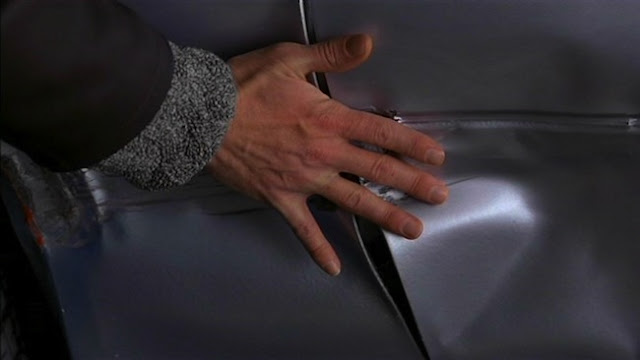The past is redundant
From Iain Sinclair, writer, filmmaker and great student of London, assaying in the Guardian a week on: "Now the horror comes in the muted register of the universal mobile-phone greeting. I'M FINE RU OK is the text we receive before we know anything is wrong. Fast-twitch technology anticipates disaster. The latest gizmos mediate between the ugly truth of the streets - dirt, danger, noise - and the computer-generated cyberspace of the world as it ought to be - blue water, green trees, Barratt homes... Landfill mountains and dereliction are hidden from the innocent gaze of rail passengers and Olympic commissioners heading eastwards from Fenchurch Street towards Southend. A bright new wooden fence has been erected, miles of it, to cancel blight... Then, suddenly, from nowhere, news reports blow such feeble strategies apart, presenting us, in unforgiving full colour close-up, with real damage, actual bodily harm. We shouldn't, unless we work in hospitals, in casualty departments, witness such things... This, as we eat or slump in our homes after the daily battle with an overstretched transport system, is news from elsewhere. But that elsewhere is strangely familiar. We've grown used to out-of-synch video-phone quiver from deserts, shanty towns, wrecked tourist hotels. Such sights do not belong in Aldgate East, Tavistock Square. They hurt. The victims speak with our own voices... The writer Derek Raymond used to call it the "general contract" - mortality. Shit happens. You don't have to fill in an application. We have been told, but we didn't believe it coming from that source, the politicians, that there were people out there who didn't know us but who wanted to kill us. Blow us apart. Destroy the idea of the city as a community, a viable organic entity. They wanted, above all else, to activate one strand of urban life: paranoia. The dark thing that is always beside us, nudged by every 20-minute hold in an Underground tunnel, close heat, no voice, or the voice of some distant robot... The novelty of the recent atrocities lay in the astonishing immediacy of the forms of remembrance. No editing, no staged highlights. No retakes. We seem to be remembering events that have not yet occurred. A fabulous stream of low-definition, drift imagery: pedestrians swimming through smoke and fuzzy light. Recorded by someone, anyone, who is a part of the event, not a privileged outsider. Tunnels and trains captured on a mobile-phone. We see through our pores. We exchange deep memory for a disposable sense of present time. Everything is out there, nothing is special. The past is redundant."
